News
-
 Astronomy
AstronomyA bizarre gamma-ray burst breaks the rules for these cosmic eruptions
The 50-second gamma-ray burst is the first that unambiguously breaks the rule that long bursts usually come from supernovas.
-
 Microbes
MicrobesThe ancestor to modern brewing yeast has been found hiding in Ireland
Previously found in Patagonia and elsewhere, the brewing yeast Saccharomyces eubayanus has been found in Europe for the first time.
-
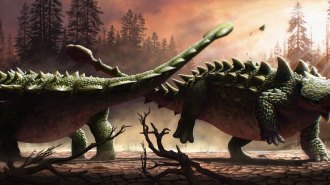 Paleontology
PaleontologyArmored dinos may have used their tail clubs to bludgeon each other
Broken and healed spikes on Zuul's flanks are consistent with the armored beast receiving a mighty blow from the tail club of another ankylosaur.
By Jake Buehler -
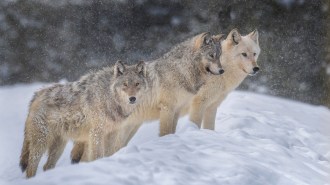 Life
LifeA parasite makes wolves more likely to become pack leaders
In Yellowstone National Park, gray wolves infected with Toxoplasma gondii make riskier decisions, making them more likely to split off from the pack.
By Jake Buehler -
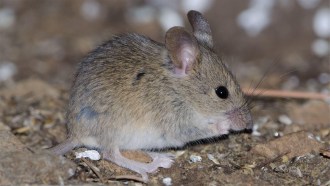 Animals
AnimalsA natural gene drive could steer invasive rodents on islands to extinction
A few genetic tweaks to a readily passed-on chunk of DNA could sterilize a mouse population, eliminating them in as little as 25 years.
-
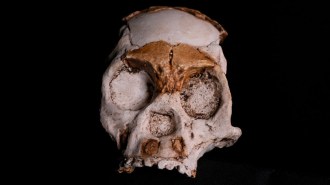 Anthropology
AnthropologyHomo naledi may have lit fires in underground caves at least 236,000 years ago
Homo naledi may have joined the group of ancient hominids who built controlled fires, presumably for light or warmth, new finds hint.
By Bruce Bower -
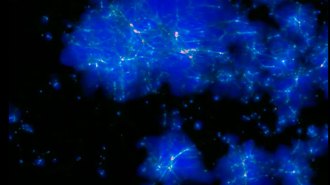 Astronomy
AstronomyA new supercomputer simulation animates the evolution of the universe
The detailed simulation shows the cosmos changing from a dark, featureless gas to a web of stars and galaxies radiating light.
-
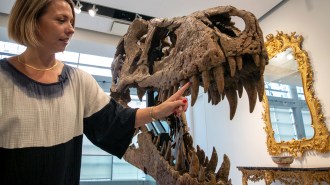 Paleontology
PaleontologyWhy the sale of a T. rex fossil could be a big loss for science
At least half of the roughly 120 known T. rex fossils are owned privately and not available to the public. “Maximus” may join them.
-
 Paleontology
PaleontologyThis dinosaur may have had a body like a duck’s
Natovenator polydontus may have been adapted for life in the water, challenging the popular idea that all dinos were landlubbers.
By Nikk Ogasa -
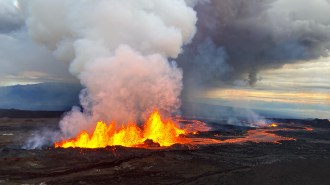 Earth
EarthHawaii’s Mauna Loa volcano is erupting. Here’s what you need to know
A geophysicist with the U.S. Geological Survey answers questions about the recent eruption of the world's largest active volcano.
-
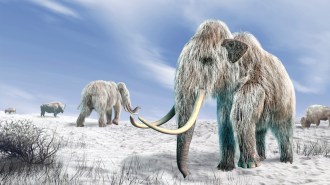 Paleontology
PaleontologyMammoths may have gone extinct much earlier than DNA suggests
Ancient DNA in sediments may be leading paleontologists astray in attempts to figure out when woolly mammoths and woolly rhinos died out, a new study argues.
By Bas den Hond -
 Physics
PhysicsPhysicists explain how to execute a nearly splashless dive
A pocket of air lets elite divers pull off the rip entry, breaking through the water without sending it flying.